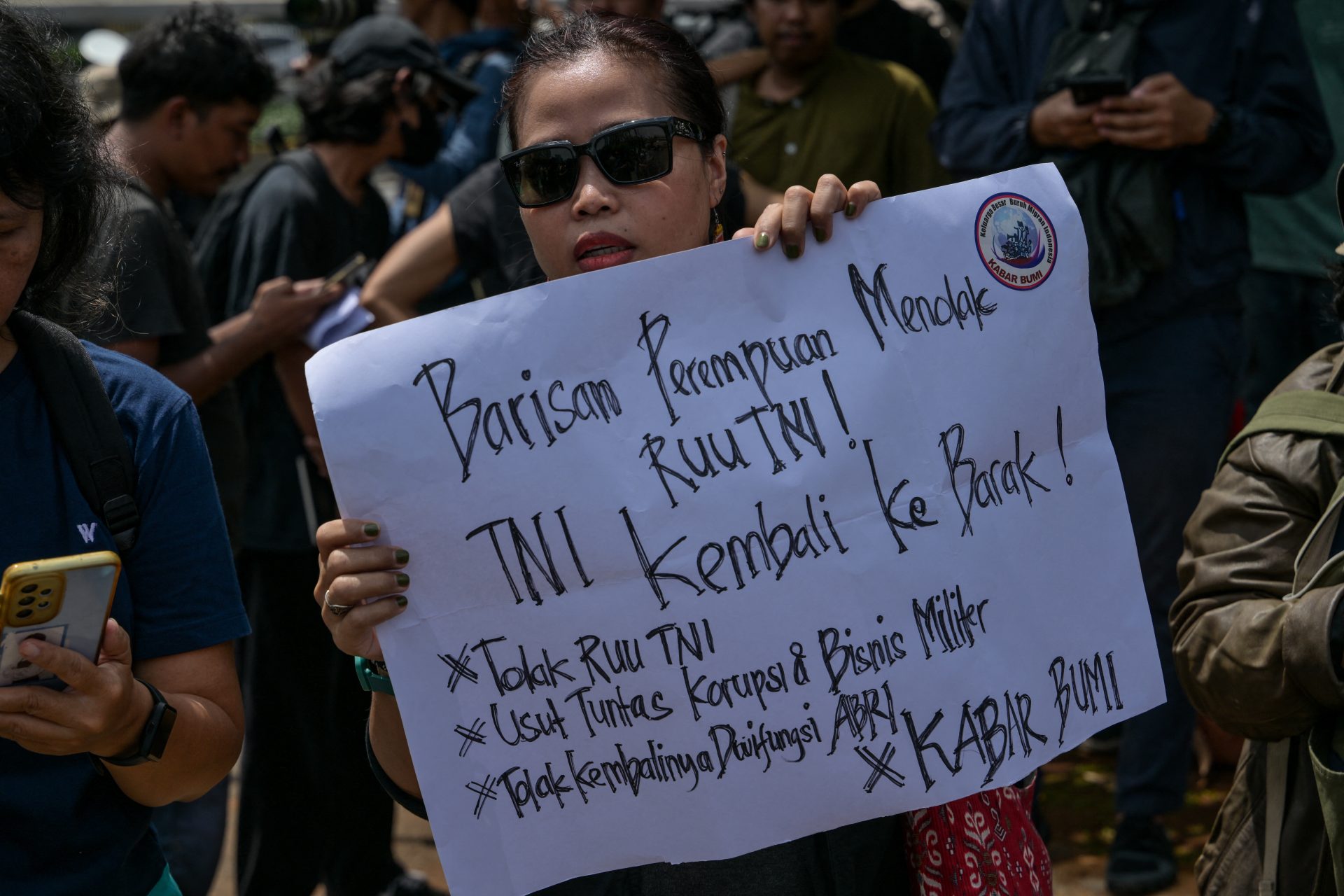Indonesia’s House of Representatives (DPR RI) on Wednesday passed the controversial revision of the Indonesian National Armed Forces (TNI) Law.
The move drew criticism from academics, civil society groups, and pro-democracy activists who warned that it could erode democratic values and revive the military’s influence over civilian governance.
All political factions in the DPR RI unanimously approved the ratification of the amendments during a plenary session on March 20, despite mounting public opposition and growing protests nationwide.
Critics argue that the changes threaten civilian supremacy over the military and could signal a return to the authoritarian-era doctrine known as Dwifungsi ABRI (Dual Function of the Armed Forces), which allowed the military to control governance during Suharto’s New Order regime (1967–1998).
Since March 19, students and activists have staged protests in several cities, including Jakarta, calling for the cancellation of the revised law.
Demonstrators argue that the changes effectively revive military intervention in civilian affairs, undermining reforms established after the 1998 political transition.
Currently, more than 2,500 active military personnel hold civilian positions in Indonesia. The revised law expands the number of government institutions where active TNI members can serve from 10 to 14 and extends the retirement age for military personnel.
Legal scholars and civil society leaders have denounced the amendments. Professor Koerniatmanto Soetaprawiro of Parahyangan Catholic University told LiCAS News that the revision may be driven by President Prabowo Subianto’s personal ambitions.
“Prabowo may distrust the civilian leadership’s ability to execute government directives, particularly given Indonesia’s political culture of party loyalty over national interests,” he said.
Gerakan Nurani Bangsa (National Conscience Movement), a broad civil society coalition, held a press conference on March 19, condemning the law’s ratification.
Alissa Wahid, daughter of Indonesia’s 4th President KH Abdurrahman Wahid, questioned the speed of the legislative process. “What is the urgency behind this rush? Our demand is clear: cancel the revision, not just delay it. This move only undermines military professionalism,” she said.
Critics highlighted concerns over the lack of transparency in the legislative process, citing previously controversial laws passed without public consultation, such as the Job Creation Law and the Mineral and Coal Mining Law.
Three major revisions sparked the strongest opposition:
- Article 7: Expands military operations beyond war, adding tasks such as cyber defence operations and protection of Indonesian citizens abroad, increasing the military’s core functions from 14 to 16.
- Article 47: Allows active TNI personnel to serve in 14 civilian institutions, including the Attorney General’s Office and the Supreme Court. Personnel must retire or resign to take positions outside these institutions.
- Article 53: Raises the retirement age for TNI personnel. Non-commissioned officers can now serve until 58, middle- to high-ranking officers until 60, and four-star generals until 63, with potential extensions up to 65 through presidential decree.
Despite widespread criticism, lawmakers defended the law, claiming it would prevent, rather than enable, military involvement in politics.







